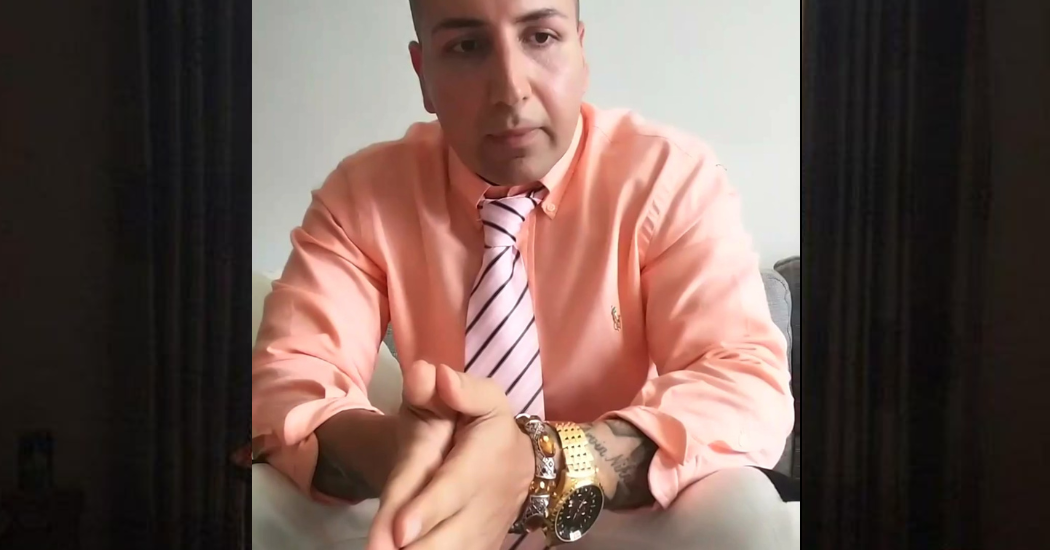- Article Written By Arvin Niknia, Independent Author
All Muslims thought the Battle of Hattin (1187) ended the Western presence in the Middle East, but this was only the beginning—the war for the Holy Land, which continues today with Western countries indirectly supporting Israel in genocide. When President Joe Biden (2021-2025) asked Israeli Benjamin Netanyahu (2022) why he was committing genocide, his answer was obvious: “Was the US nuclear attack during World War II against Japan not genocide?”
In ancient times, the Euphrates divided the Persians and Romans, but later, the Pope redefined East and West. He decided who was European—excluding Muslims—shaping a new identity. Once the foes of Alexander, the Greeks now shared their “European” status with the Macedonians. Even the once-barbaric Germans and Vikings could now claim Roman and Greek civilization as their own.
An unusual thing happened in the Renaissance: Europeans moved further from superstition and towards industrialization. After the fall of the last great power in Asia, Nader Shah (1688-1747), the British were now happy to take over and colonize India. Many countries would still speak Persian as their official language if the British had not come. Now, it was about crushing the Persians, destroying their civilization, and creating a holocaust, which the British were good at. More colonial powers, such as the French and Portuguese, also arrived. They soon learned that dividing areas is better than fighting. They created the new Middle East, Arab monarchies, and Israel.
Many say that Palestine never existed anyway. This sentence is just as false as the sentence that says the French and the British created the modern borders we have today in the Middle East. We all know that borders move because of war, so the borders they set in their time are not quite the same as we see today, but IS, like all other populists, likes to create dynamics and false beliefs. About Palestine, I refer to the Kingdom of Palestine, the Peel Commission (1937), the Arab Palestine Congress in Haifa in December 1920, and the Palestine revolt in 1930 and 1936-1939.
We have people like President Recep Tayyip Erdogan (2014–present) in Turkey who do not respect borders at all and have said many times that Syria and the Iranian provinces belong to Turkey. He still believes that Turkey is the Ottoman Empire, but Turkey is a new phenomenon both culturally and politically. His populism is based on the idea that everyone who speaks Turkish belongs to the Turkish world. This is a big lie. President Vladimir Putin (1999-) also does not believe in borders because that is something Comrade Joseph Stalin (1878-1953) created in his time. After Turkey and Russia had to say goodbye to their dreams of becoming part of Europe, they returned to the Russian and Ottoman empires.
Nevertheless, let us divide the world into first, second, and third worlds. French anthropologist Alfred Sauvy (1898–1990) divided the world into the first, second, and third worlds, which became another tool for Western countries to separate themselves from the rest of the world. Later, the American Alfred Thayer Mahan made the term Middle East more visible. The Middle East can be understood as an imperial invention created by the European imperial powers. Middle East is a Eurocentric term coined by the British for the first time.
Darwin’s classification theory helped create the idea that some races are better and more superior than others. Unfortunately, many still live with this belief today. This belief helped create colonialism. This belief helped justify the young Winston Churchill’s (1874-1965) massacre of Africans who wanted freedom and no longer wanted to suffer under British colonialism. Later, the German Adolf Hitler (1889-1945) justified his brutal actions with the idea that Germans were superior. Racism became part of European culture, which could strengthen nationalist thoughts.
All Middle Eastern countries were forced to declare war on Germany during World War II when the Allied powers occupied them. In return, they were allowed to secure membership in the United Nations. After the war, nationalist forces took over in the Middle East. As Benedict Anderson (1936-2015) says in his book Imagined Communities, nationalism is socially constructed.
When nationalism broke out in the Middle East and Africa, populism became dominant in the Middle East and Africa. The post-colonial regimes called themselves heroes and perceived the power as their own. Authoritarian regimes were created that partly had roots in Middle Eastern culture (the Millet system), Islam (sharia law), and Western colonialism, which had contributed to poverty and superstition.
The populist hero of the Arab world, Gamal Abdel Nasser (1918-1970), called Iran and Israel the enemy and talked about an Arab community built on the Arabic language. This populism has its roots back in the Umayyad Caliphate (661-750), which, in its time, built a community where the Arabic language was dominant. The Arabs at that time did not define themselves by language but by their clan. They were loyal to their clan, and several were allies of the Persians and Romans before the Islamic expansion.
Before the Persians were attacked by Bedouin Arabs, the Persians’ allied clans were defeated (the Quraysh) and plundered. Even the Prophet Muhammad had many internal wars against other clans before Islam became a common ideology. Therefore, the idea of an ordinary Arab world or European Union is only an invention.
While the West champions civilization and democracy—both its inventions—it often labels the Middle East as uncivilized due to authoritarian regimes. However, until the early 20th century, Europeans exhibited Indian and African people in zoos alongside animals. Egyptian mummies were stolen, sold, and even ground into powder for medicinal use. Meanwhile, Europe housed authoritarian regimes, with Spain under Francisco Franco (1892–1975) and Portugal’s Estado Novo dictatorship lasting until 1974.
Portugal, a colonial power until 1974, waged brutal wars in Africa, massacring thousands in a desperate bid to maintain control. Ironically, it was left-wing officers with anti-colonial beliefs who ended its dictatorship. Western-drawn borders also fueled conflicts, genocide, and political marginalization, exposing the contradictions in its narrative of democracy and progress.
The genocide in Bangladesh (East Pakistan) committed by Pakistani President Yahya Khan (1917-1980), who had the support of the US president, was one of the greatest nightmares of modern times. Of course, there were also looting, genocide, and slavery in the Middle East in old times. Many were captured in wars and brought into slavery. I am simply against the idea that Europeans are civilized and others are uncivilized. The idea that a nation is immortal was broken when Jalaluddin Khwarizmi stood bravely and fought against the Mongols for the first time in the Battle of Parwan (1221). He showed that the Mongols were not immortal and could be defeated. Before, everyone believed the Mongols could not be defeated and that they were invincible.
Although Middle Eastern countries copied reforms (Tanzimat) from Europeans to ensure their survival, such as the dissolution of the Mamluks in 1811 in Egypt and the Janissaries in 1826 in favor of the Nizam-i Jedid (modern military institution), the Ottomans went bankrupt in 1875. After the wars with Russia, Iran had long gone bankrupt by 1828. This created room for Western concessions.
The French did not want to accept that they had to let go of their colonies, so they started an invasion of Vietnam again after the Second World War. The fight lasted 9 years, and now the French had to leave Vietnam because they could not colonize Vietnam as long as communist China helped Vietnam.
Shortly after, the United States began the Vietnam War. At that time, the United States, due to the Domino Theory, had an idea that if the United States did not interfere, communism would spread. It was not only about Vietnam but also Cambodia and Laos. During the war, which had nothing to do with the United States but was just a civil war, the United States dropped millions of tons of bombs over the Ho Chi Minh Trail, which was a logical route for Vietnam. In the Vietnam War, the United States dropped more bombs than Japan and Nazi Germany had used together during World War II.
One of the most brutal genocides in history occurs in Cambodia, where millions are executed after the Khmer Rouge takes power. What I am trying to say is that neither the Khmer Rouge leader nor President Nixon’s administration was brought to judgment for their genocide. If you commit murder, you will go to prison because the state sees you as a lawbreaker who has created disorder in society. You are a threat to the state’s balance of order, but you will never go to prison if you commit a major genocide. You may risk going to prison only if you are on the opposing side and are captured like the Serbian Slobodan Milošević (1941-2006).
Nonetheless, brutality is nothing new. The Muslim Brotherhood organized fights against the British occupation of the Suez Canal in 1949. This is because, besides the French, the British also did not want to give up their old colonies. After the Second World War, most monarchies in the Middle East were replaced by republics with CIA interference to increase influence. The Baath Party was established in Syria in 1941 and later took power. The ideology is Pan-Arab and independence. Old colonial countries are now taken over by extreme forces fighting for independence. These extreme forces believed in a free Palestine; therefore, they were wiped out one by one by Israel with American and Western illegal wars in the Middle East. The only country that is still left after the fall of Bashar al-Assad in Syria is now Iran.
I described in my previous articles how the United States supported militant groups and IS in Syria against Assad. In Africa, the US has had an interest in the country of Somalia since President Mohammed Siad Barre (1969-1991) and has since supported the group Al-Shabaab with millions of dollars to destabilize the country. Politics and interests govern the so-called democracies in the US and the West. We have all witnessed President Donald Trump (2025) saying that support for the Taliban in Afghanistan has stopped. Millions of dollars were sent to the Taliban in Afghanistan. The Taliban controls the capital of Afghanistan with a modern camera system of around 100,000 units. Modern systems and modern American weapons ensure the Taliban’s power in Afghanistan and enable them to destabilize the region. In addition, the Americans stood in the way of the digitalization of Afghanistan, which benefited corruption.
Several countries today invest in weapons and the sale of weapons. Turkey has become one of the largest weapons industries in the present day. There are currently more than 3000 weapons factories in Turkey. Turkey has more than 100 bases in Iraq and has accepted Iraq’s militant group Hashd al-Sha’bi only if they do not interfere in Syria. This reduced Iranian influence in Syria, which, after the collapse of Hezbollah, ensured the fall of Assad. Turkey has taken over Syria itself and is building a base in Syria. Erdogan spends money abroad on geopolitical interests, strengthening inflation in Turkey. In addition, Erdogan has been in power in Turkey for several years, and it seems that if the demonstrations in Turkey collapse, then Erdogan will stay in power for the rest of his life.
Turkey had problems with Assad because, among other things, he would not give up land to Turkey because of shared water rivers. These problems are also seen now in Pakistan and Afghanistan and have long been between Iran and Afghanistan. It seems that water supply plays a role in conflicts. Western bases in Djibouti and control of Bab-el-Mandeb. US ships in the Persian Gulf and control of the Gulf. The Dardanelles, Turkey and Russia. Strait of Malacca, China and India. Control of the sea, the fight for oil and raw materials.In addition, Iraq’s dependence on Iranian gas and electricity ensured loyalty to Iran. Turkey, Qatar, and Turkmenistan are now out-competing Iran, which is suffering from severe sanctions. Assad’s fall ensured free rein for Israel as the peace agreements between Syria and Israel disappeared. This meant the invasion and bombing of Syria. After Assad’s fall, Iran focused more on its nuclear program, not to attack Israel but to ensure its survival, as no country will attack a country with a nuclear weapon.
Iran showed great weakness when it did not show a reaction after the death of Hassan Nasrallah (1960-2024). Both the USA and Israel were afraid of a significant reaction from Iran and the start of World War III. The USA has stationed several B-52s on Diego Garcia Island, which belongs to England, even though the island is close to India. The island has been used in the Gulf Wars, and the USA has strengthened its presence in the Persian Gulf. It seems that the USA will scare Iran since Israel will soon carry out military action against Iran. The focus on nuclear weapons also became more in Europe when Trump in the USA took power, and Europe felt alone against Russia. Germany wants to build the strongest military in Europe. Currently, only France is allowed to use its nuclear weapons without restrictions. Countries like Japan and Germany, which once promised not to go to war anymore, have long broken their promise.
In a nutshell, I would like to mention some rulers who have committed the most genocide and murder in history. These rulers have different identities and come from different places, but what they have in common is that they all fought for a belief, conviction, or ideology. Some of them were a direct result of colonialism. Today, many of them are seen as national heroes. This is where cultural issues come into play:
Timur, Augusto Pinochet, Nero, Caligula, Fidel Castro, Rafael Trujillo, Francisco Enguema, Salman Bin Al Saud, Ivan the Terrible, Josip Tito, Idi Amin, Benito Mussolini, Bashar Al Assad, Ho Chi Minh, Nicolae Ceausescu, Mengistu Mariam, Saddam Hussein, Suharto, the Kim Dynasty, Omar Al Bashir, Pol Pot, Leopold, Hirohito, Mao Zedong, Chengiz Khan, Stalin, and Hitler.

























